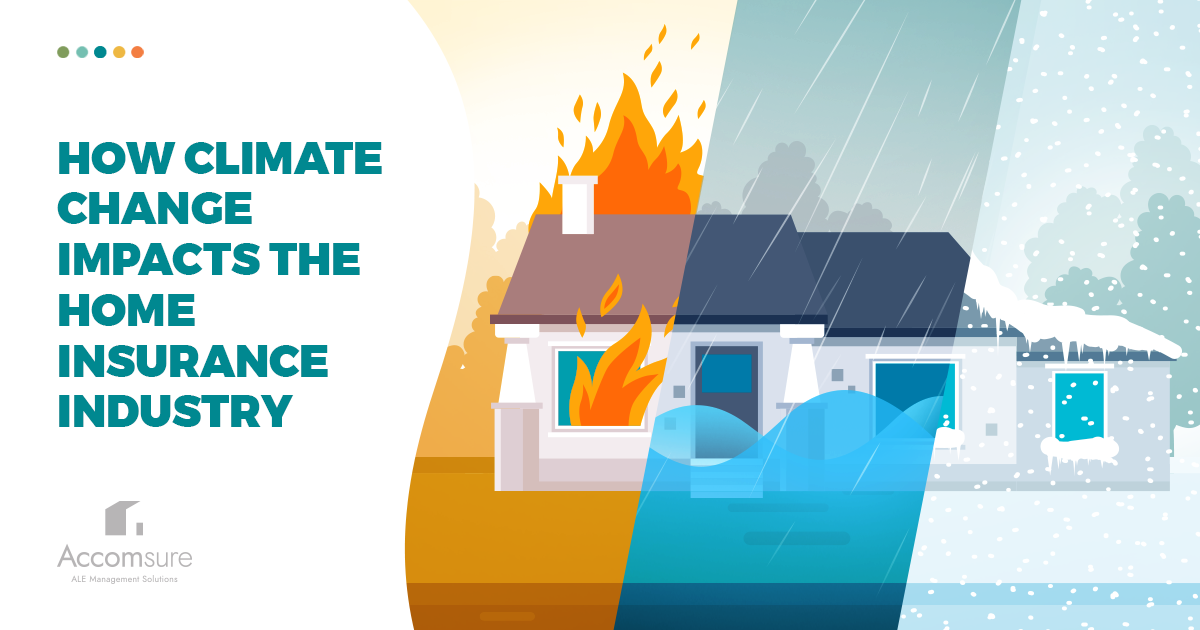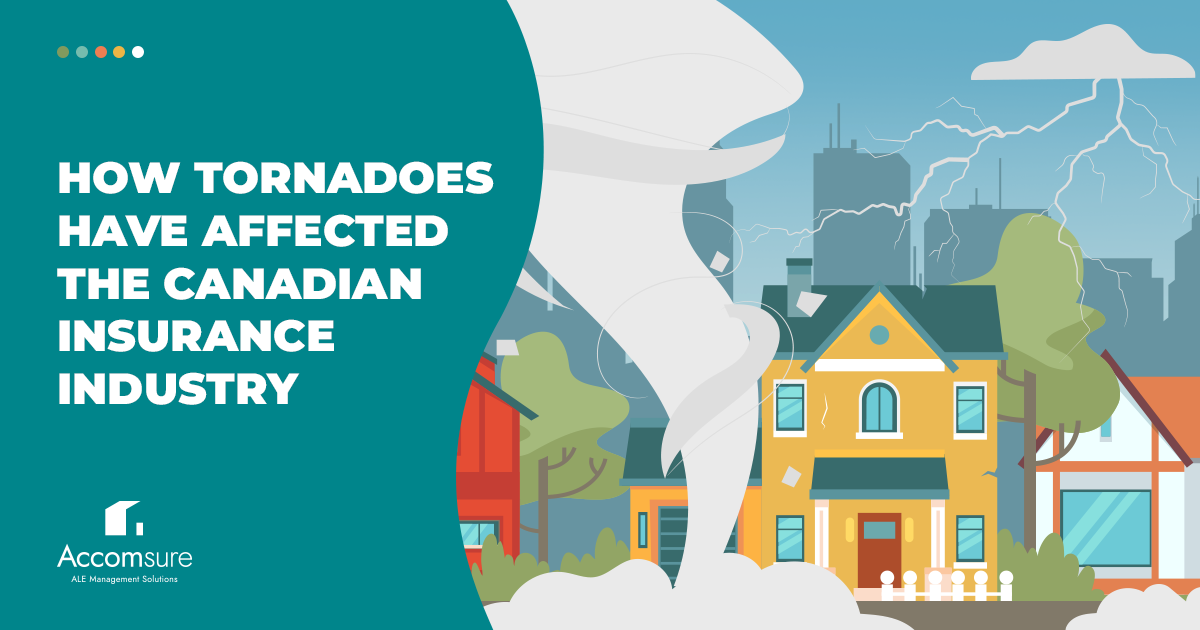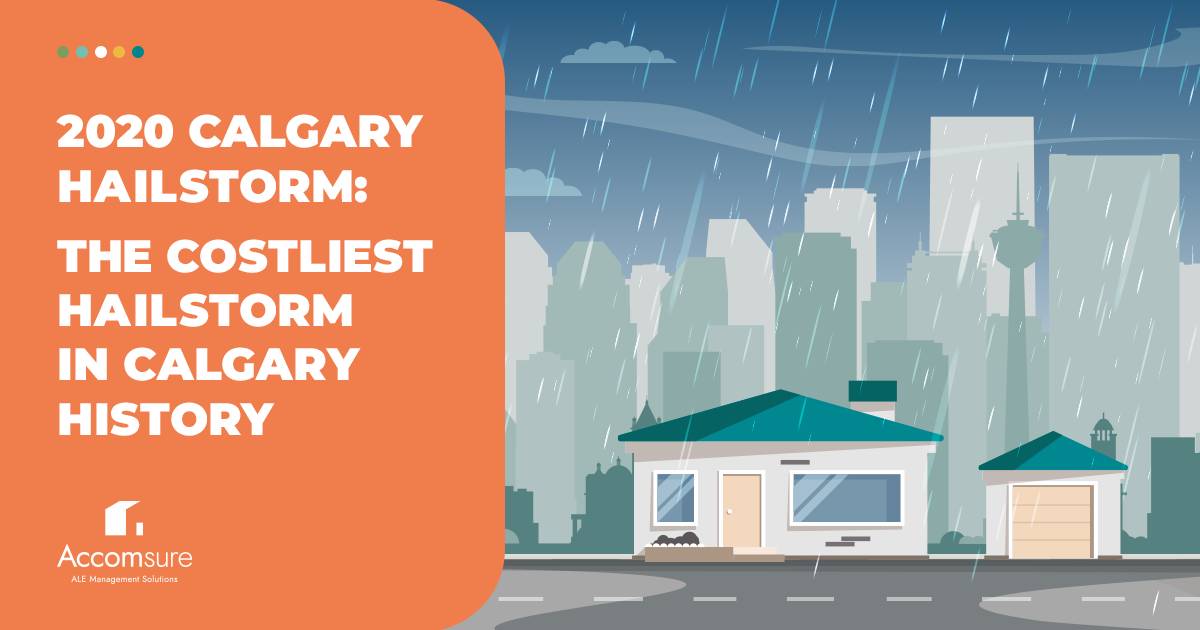How Climate Change Impacts the Home Insurance Industry
Climate change.
It’s been a hot topic for decades in the insurance industry. In fact, the vast majority of industry executives recognize that a response to climate change is a top priority.
As the climate continues to change, we will see more and more severe weather events resulting in more insurance claims, higher claim costs, and increased adjuster workloads. So, what can you do to mitigate your risk as an insurance company in Canada?
In this article, we’re taking a look at the extent to which climate change threatens the insurance industry, how severe weather events impact the industry, and how insurance companies can reduce their risk.
Climate Change Stats & Trends

Before we dive into the ways that climate change has and will affect insurance companies in the years to come, it’s important to first take a look at some key statistics that exemplify the extent to which the Canadian insurance industry is at risk.
- In the past 20 years, climate-related disasters increased 83%. (Yale)
- Canada’s climate is warming 2x faster than the global average. (Government of Canada)
- Atlantic Canada is one of the regions most threatened by global climate change. (Climate Action Network)
- In the next 10 years, average severe weather claims in Canada are expected to double, increasing from $2.1 billion to $5 billion each year. (Insurance Institute)
- In 2020, severe weather events cost Canadian insurers $2.4 billion. (CTV)
The Effects of Climate Change on the Insurance Industry

When it comes to climate change, the numbers above suggest that the worst is yet to come. In the following sections, we’ll discuss some of the negative impacts caused by climate change. Insurance companies are likely to see an increase in these challenges in the coming years as severe weather events become more frequent and devastating.
Increase in Property Damage & Losses
From the Fort McMurray wildfire in 2016 to the Calgary flood in 2013, it’s safe to say that Canadians have experienced our fair share of severe weather in recent years. These two weather events alone resulted in property damage that displaced almost 200,000 residents from their homes. Losing a home to a severe weather event can be a traumatizing experience for your policyholders and can leave many uncertain about where they’ll spend the night. As we start to see an increase in severe weather events, the industry will see even more policyholders facing difficult circumstances with a lot of uncertainty.
Increase in Claim Costs
The increase in property damage is not only troubling to policyholders but also costly to insurance companies. For example, the three most costly hailstorms in Canada cost over $2 billion in insurance payouts. More severe weather events mean more property damage and more property damage means more insurance payouts.
Increase in Adjuster Workloads
Finally, an increase in insurance payouts also means an increase in adjuster workloads. Adjusters already have a lot on their plates as it is. A severe weather event can cause adjusters to become overworked and often results in reduced quality of customer service.
Additionally, as discussed, severe weather events are not only increasing frequency but also in severity. More severe weather events are more likely to result in complex home insurance claims with more policyholders displaced from their homes. When policyholders are focused on where they’ll spend the night, it becomes more difficult for adjusters to focus on the claim.
How The Insurance Industry is Adapting

With costs and losses on the rise, insurers can no longer sit idly by and avoid addressing the impact of climate change. Here are some of the ways that insurance companies are adapting to climate change and working to mitigate their risks down the line.
Incentivizing Policyholders to Reduce Their Risk
A common approach to mitigating the risks associated with severe weather events is inspired by usage-based auto insurance. Some home insurance companies are providing incentives to policyholders who invest in reducing their climate-related risks. These incentives include discounts in premiums or financial assistance to help policyholders pay for their mitigation efforts.
Investing in Risk Prevention
Instead of just helping policyholders mitigate their climate-related risks, some insurance companies are going a step further and are helping prevent policyholders from incurring damage to their property. For example, one home insurance company gives its policyholders access to wildfire-defence services. These services help policyholders relocate their valuables in the event of a nearby wildfire and even deploy fire professionals to their homes if the wildfire is headed in their direction.
Taking Advantage of Advanced Analytics
Another way that insurance companies mitigate their risks is by using advanced analytics to improve their risk selection and pricing. Although climate change is relatively uncertain, many insurance companies are engaging with the climate science community and using advanced analytics to make better predictions regarding future climate conditions.
Mitigate the Effects of Climate Change with Accomsure
Although it is critical for Canadian insurance companies to reassess and improve their response to climate change, severe weather events are still bound to happen. So, what do you do to mitigate the effects of climate change after a severe weather event has already occurred?
That’s where Accomsure comes in. When a storm hits or a fire ignites, it’s too late to turn around and evaluate what you could have done to reduce your losses. Whether it’s a flood, a wildfire, or any other severe weather event, it’s likely that some of your policyholders will become displaced from their homes. At Accomsure, our expertise lies in helping these policyholders find temporary accommodation that fits their needs and stays within their policy limits. This effectively reduces your workload, helps you focus on the claim, and mitigates your costs.
The next time severe weather strikes, Accomsure is prepared to provide both you and your policyholders with the help you need. Visit our website to submit a claim or contact us to learn more.




